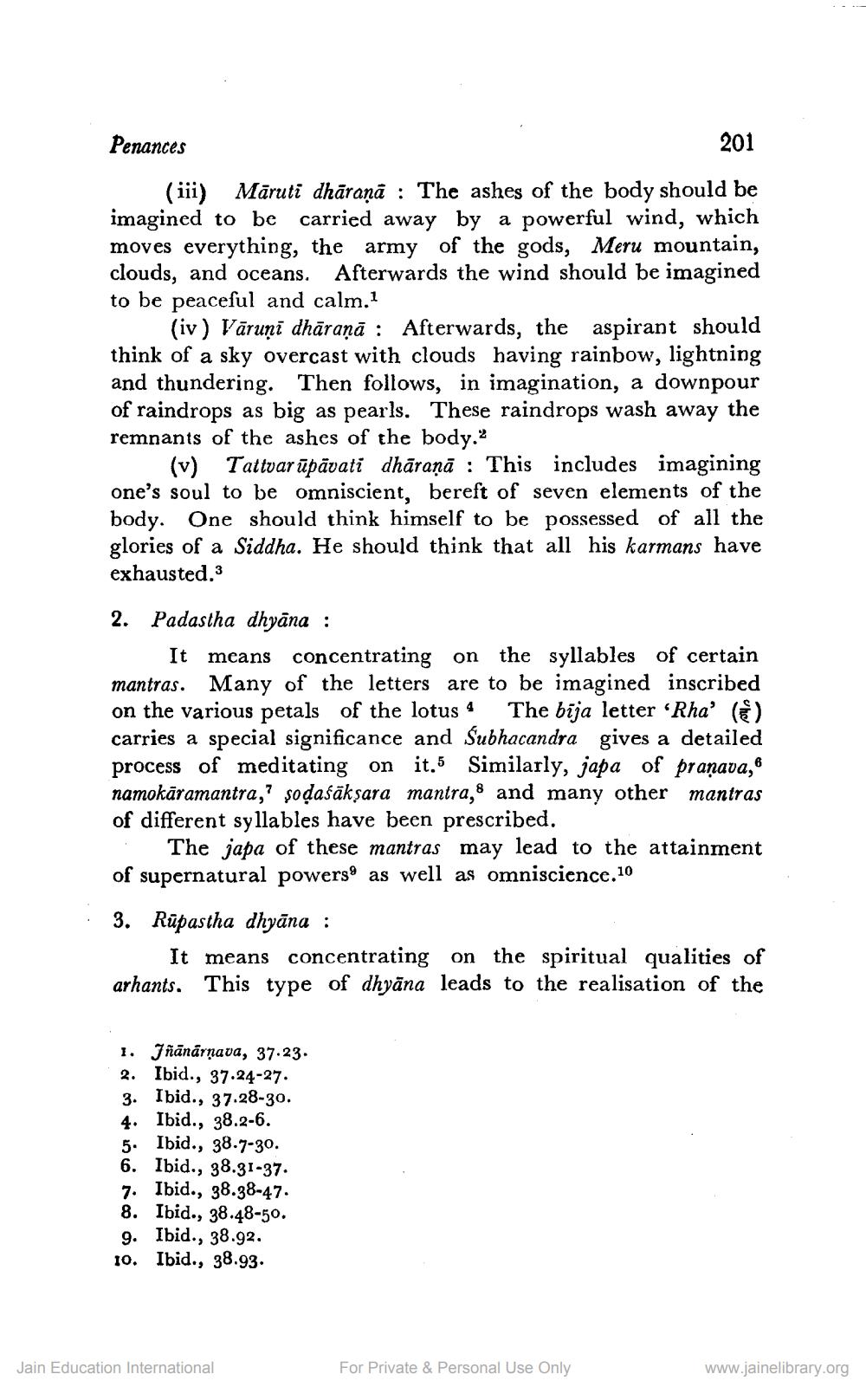________________
Penances
201 (iii) Māruti dhāraņā : The ashes of the body should be imagined to be carried away by a powerful wind, which moves everything, the army of the gods, Meru mountain, clouds, and oceans. Afterwards the wind should be imagined to be peaceful and calm.?
(iv) Vāruri dhāraņā : Afterwards, the aspirant should think of a sky overcast with clouds having rainbow, lightning and thundering. Then follows, in imagination, a downpour of raindrops as big as pearls. These raindrops wash away the remnants of the ashes of the body.2
(v) Tattvar ūpāvati dhāraņā : This includes imagining one's soul to be omniscient, bereft of seven elements of the body. One should think himself to be possessed of all the glories of a Siddha. He should think that all his karmans have exhausted. 3
2. Padastha dhyāna :
It means concentrating on the syllables of certain mantras. Many of the letters are to be imagined inscribed on the various petals of the lotus 4 The bija letter ‘Rha' () carries a special significance and Subhacandra gives a detailed process of meditating on it.5 Similarly, japa of praňava, 6 namokāramantra,? sodasāksara mantra,8 and many other mantras of different syllables have been prescribed.
The japa of these mantras may lead to the attainment of supernatural powers' as well as omniscience.10 3. Rūpastha dhyāna :
It means concentrating on the spiritual qualities of arhants. This type of dhyāna leads to the realisation of the
1. Jñānārņava, 37.23. 2. Ibid., 37.24-27. 3. Ibid., 37.28-30. 4. Ibid., 38.2-6. 5. Ibid., 38.7-30. 6. Ibid., 38.31-37. 7. Ibid., 38.38-47. 8. Ibid., 38.48-50. 9. Ibid., 38.92. 10. Ibid., 38.93.
Jain Education International
For Private & Personal Use Only
www.jainelibrary.org




